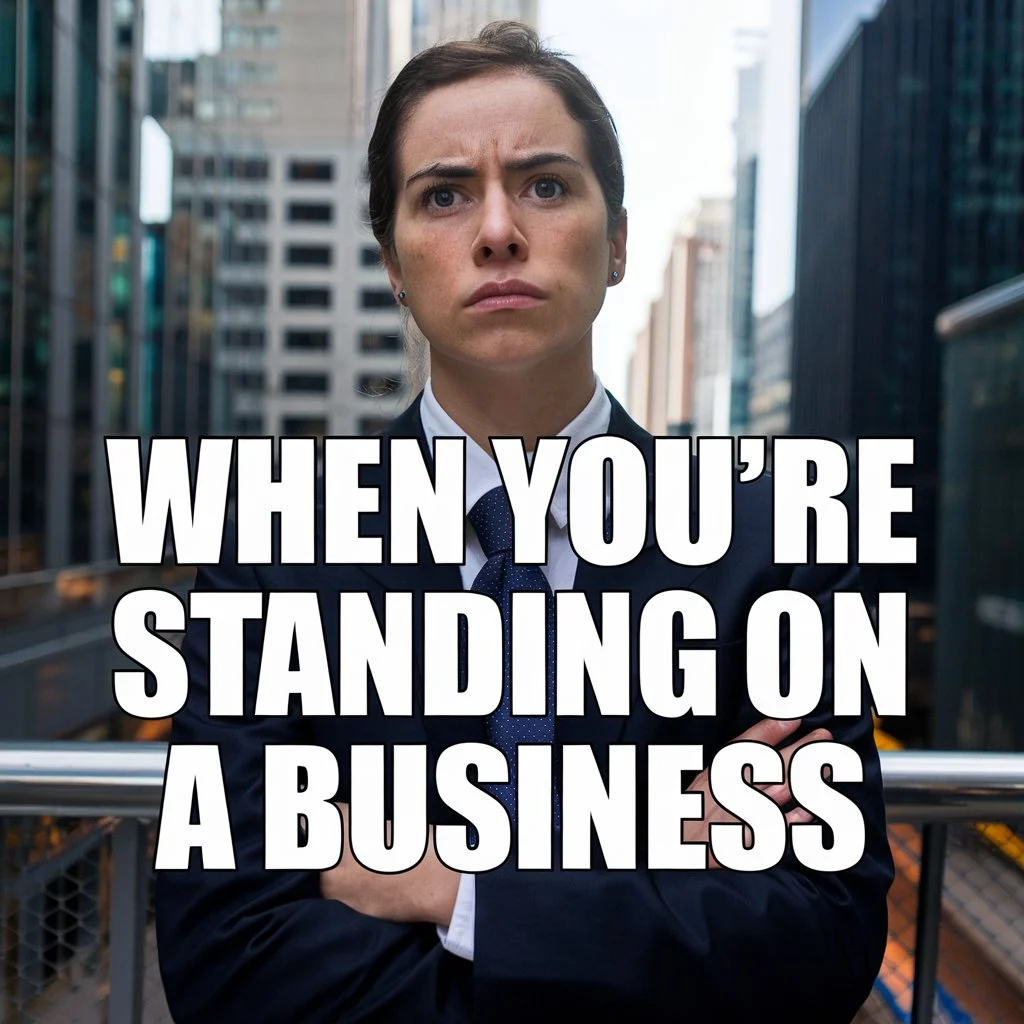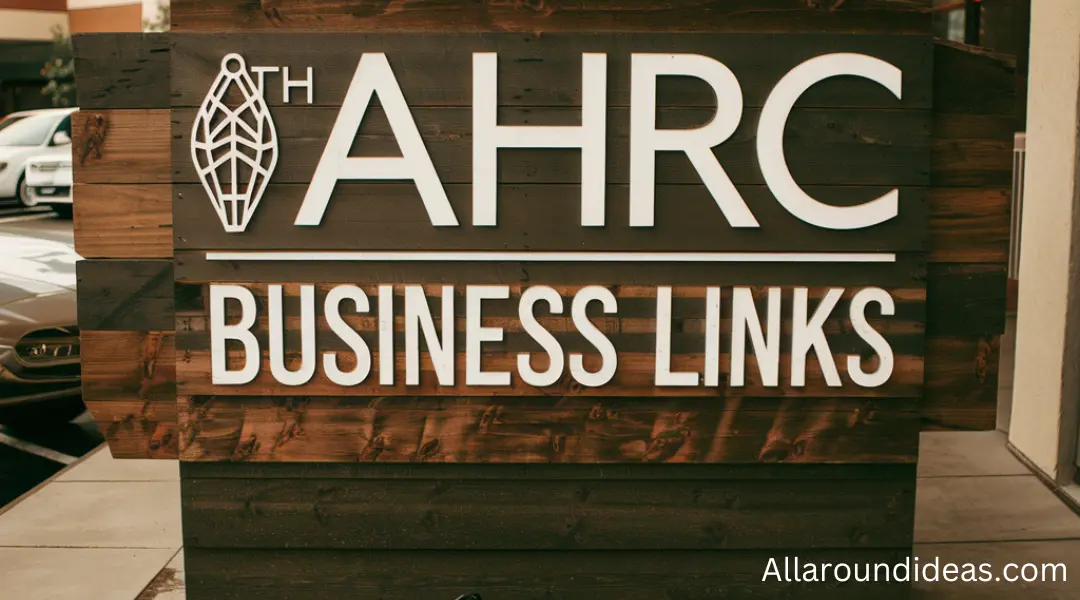Now a days in the internet, memes have become a universal language, transcending borders and cultures. Among the countless memes that have emerged, one stands out for its humor, relatability, and the insight it provides into modern business culture: the “Standing on Business” meme. This article will explore the origins, evolution, and cultural significance of the “Standing on Business meme“, illustrating how it reflects contemporary attitudes toward work, entrepreneurship, and personal branding.
Origins of the Meme
The Initial Spark
The “Standing on Business” meme originated from a video clip featuring a charismatic entrepreneur or influencer, often displaying an exaggeratedly confident demeanor. In this clip, the individual is seen “standing” in a metaphorical sense—asserting their dominance, showcasing their hustle, and promoting a mindset focused on success and ambition.
The phrase itself, “standing on business,” suggests a commitment to one’s work, a determination to succeed, and a strong personal brand. It embodies the hustle culture prevalent in today’s entrepreneurial landscape, where individuals often feel the need to project confidence and authority in their professional endeavors.
Viral Spread
Initially shared within niche communities on platforms like Twitter, TikTok, and Instagram, the meme quickly gained traction. Users began to remix the original video, adding their captions, contexts, and even parodies. The phrase “standing on business” became a catchphrase, representing not just the act of working hard but also the attitude of unwavering commitment to one’s goals.

If you want some information about AHRC Business Links then checkout our previous blog post.
Characteristics of the Meme
Visual Elements
The meme typically features a clip of the original influencer, often with a serious or intense facial expression, emphasizing their dedication. The accompanying text may vary, but it usually includes phrases that resonate with the hustle culture, such as “I’m standing on business” or “You’re not standing on business.”
Contextual Flexibility
One of the reasons for the meme’s widespread appeal is its flexibility. It can be applied to various contexts—be it in the corporate world, small businesses, side hustles, or personal projects. This adaptability allows users to relate the phrase to their experiences, making it a powerful tool for engagement and connection.
Humor and Irony
While the meme is rooted in a serious message about work ethic and commitment, many users adopt a humorous or ironic tone. By juxtaposing the phrase with mundane or absurd situations, users highlight the often-overblown rhetoric surrounding entrepreneurship. This blend of seriousness and humor contributes to the meme’s viral nature.
Cultural Significance
Reflecting Hustle Culture
The “Standing on Business” meme is a reflection of the hustle culture that has permeated modern society. In an era where entrepreneurship is glamorized, and success stories are amplified on social media, the meme captures the ethos of relentless ambition. It underscores the pressure individuals feel to work hard, achieve more, and constantly project a sense of success.
Personal Branding and Social Media
In a digital landscape dominated by social media, personal branding has become essential. The “Standing on Business” meme taps into this phenomenon, as it encourages individuals to craft a narrative around their work. Users are motivated to present themselves as driven and committed, aligning their online personas with the ideals of success that the meme embodies.
Community and Connection
The meme has fostered a sense of community among users who resonate with its message. By sharing their own interpretations of “standing on business,” individuals find common ground and support. This collective engagement reinforces the idea that many are navigating similar challenges in their professional lives, creating a shared experience.

If you want some information about AHRC Business Links then checkout our previous blog post.
Examples of “Standing on Business” in Action
Entrepreneurial Content Creators
Many content creators have embraced the “Standing on Business” meme to promote their entrepreneurial journeys. They may share snippets of their daily routines, emphasizing their dedication to their craft while overlaying the phrase to underscore their commitment. This not only entertains their audience but also inspires others to adopt a similar mindset.
Workplace Humor
In professional settings, employees may use the meme to poke fun at the corporate culture. For instance, a team member might share a meme featuring a boss or manager with the caption “When the quarterly report is due, and I’m standing on business,” humorously depicting the pressure to perform.
Personal Anecdotes
Users often share personal stories accompanied by the meme. For example, someone might post about their experience juggling multiple side hustles, using the meme to convey their determination to succeed against all odds. These narratives resonate with others facing similar struggles, fostering a sense of camaraderie.
Critiques and Controversies
The Dark Side of Hustle Culture
While the “Standing on Business” meme promotes a positive message about hard work and determination, it also reflects the darker side of hustle culture. Critics argue that the constant pressure to “stand on business” can lead to burnout, anxiety, and unrealistic expectations. The glorification of endless work hours can overshadow the importance of work-life balance and mental health.
Authenticity vs. Performance
As the meme emphasizes personal branding, it raises questions about authenticity. Some users may feel compelled to project an image of success, even when they are struggling. This performance can lead to feelings of inadequacy and alienation, particularly among those who compare their realities to the curated lives often depicted online.
The Risk of Overcommitment
The emphasis on “standing on business” may lead individuals to take on more than they can handle. This overcommitment can result in decreased productivity, stress, and dissatisfaction. The meme’s celebration of hustle can inadvertently promote a culture of overwork, which can be detrimental in the long run.
Evolution of the Meme
From Niche to Mainstream
As the “Standing on Business” meme gained traction, it transitioned from niche communities to mainstream culture. Influencers, celebrities, and brands began to adopt the phrase, further amplifying its reach. This evolution highlights the power of memes in shaping conversations and influencing cultural norms.
Integration into Marketing Strategies
Businesses have started incorporating the meme into their marketing strategies. By leveraging its popularity, brands create relatable content that resonates with their audience. This approach not only enhances engagement but also allows companies to connect with consumers on a more personal level.
The Meme Lifecycle
Like many internet phenomena, the “Standing on Business” meme may eventually fade in popularity. However, its impact on discussions around work, entrepreneurship, and personal branding will likely endure. As new memes emerge, they will inevitably build on the foundations laid by previous cultural moments, creating an ongoing dialogue about the nature of work and success.
Future Implications
Continued Relevance in Business Discourse
The themes encapsulated in the “Standing on Business” meme will remain relevant as the nature of work continues to evolve. With remote work, gig economies, and shifting professional landscapes, discussions about commitment, productivity, and mental health will only grow in importance.
Balancing Hustle with Well-being
As society navigates the complexities of work culture, there is an opportunity to redefine what it means to “stand on business.” Emphasizing a balance between ambition and well-being can lead to healthier work environments. The meme can serve as a catalyst for these discussions, prompting individuals and organizations to reflect on their values.
Fostering Authentic Connections
The communal aspect of the “Standing on Business” meme has the potential to foster authentic connections among individuals. By sharing their struggles and triumphs, users can create a supportive network that values honesty over performance. This shift may help combat the pressures of hustle culture and promote a more inclusive understanding of success.

If you want some information about AHRC Business Links then checkout our previous blog post.
Conclusion
The “Standing on Business” meme is more than just a viral sensation; it encapsulates the zeitgeist of contemporary work culture. By reflecting the complexities of ambition, personal branding, and community, the meme offers a lens through which we can examine our values and priorities in an increasingly competitive world.
As we navigate the future of work, it is essential to engage critically with the messages conveyed by memes like “Standing on Business.” While celebrating hard work and commitment is important, we must also recognize the need for balance, authenticity, and mental well-being. Ultimately, the meme serves as a reminder that while we strive for success, it is equally vital to nurture ourselves and our connections with others. In doing so, we can create a healthier, more sustainable approach to standing on business.


